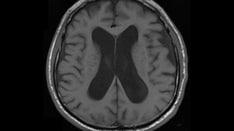TOPLINE:
Adding mental exercises to tai chi boosts memory, cognition, and executive function in older adults with mild cognitive impairment (MCI) for up to 48 weeks, a new study shows.
METHODOLOGY:
The single-blind, parallel-group, randomized superiority trial included community-dwelling individuals age 65 and older with MCI and self-reported memory decline, a Clinical Dementia Rating global score of 0.5 or lower, and no clinical diagnoses of dementia.
Participants practiced tai chi mixed with cognitively demanding activities, such as recall, association of form names with form numbers (n = 105); standard tai chi (n = 107), or stretching exercises (n = 106).
All 60-minute sessions took place primarily over Zoom twice weekly for 24 weeks.
Participants completed assessments at baseline, 16, 24, and 48 weeks.
TAKEAWAY:
At 24 weeks, those in the cognitively enhanced tai chi group reported the most improvement in mean Montreal Cognitive Assessment score from baseline (3.1-point increase from baseline; 98.75% CI, 2.6 - 3.7), followed by the standard tai chi group (1.7-point increase; CI, 1.1-2.3).
Dual-task interference during walking was reduced by 21% from baseline with enhanced tai chi (CI, 15.8 - 25.7) and 11% with standard tai chi (CI, 6.2 - 15.8).
The stretching group showed no improvement in cognitive measures.
At 48 weeks, between-group differences from baseline from the 24-week intervention period persisted, favoring cognitively enhanced tai chi.
IN PRACTICE:
"Importantly, our intervention extends the nonpharmacologic treatment options currently available in clinical guidelines by offering a well-integrated, MCI-tailored, mind–body movement therapy that trains for both cognition and dual tasking for older adults with MCI," the authors write.
SOURCE:
Fuzhong Li, PhD, of Oregon Research Institute in Springfield, led the study, which was published online October 30 in the Annals of Internal Medicine. The National Institute on Aging funded the research.
LIMITATIONS:
The study lacked a non-exercise control group, and most patients were White (86%) and well educated.
DISCLOSURES:
Li has reported no relevant financial relationships. Full disclosures are noted in the original article.
Credits:
Lead image: Samwordley/Dreamstime
Medscape Medical News © 2023 WebMD, LLC
Send comments and news tips to news@medscape.net.
Cite this: Enhanced Tai Chi Boosts Cognition in Mild Cognitive Impairment - Medscape - Nov 10, 2023.









Comments